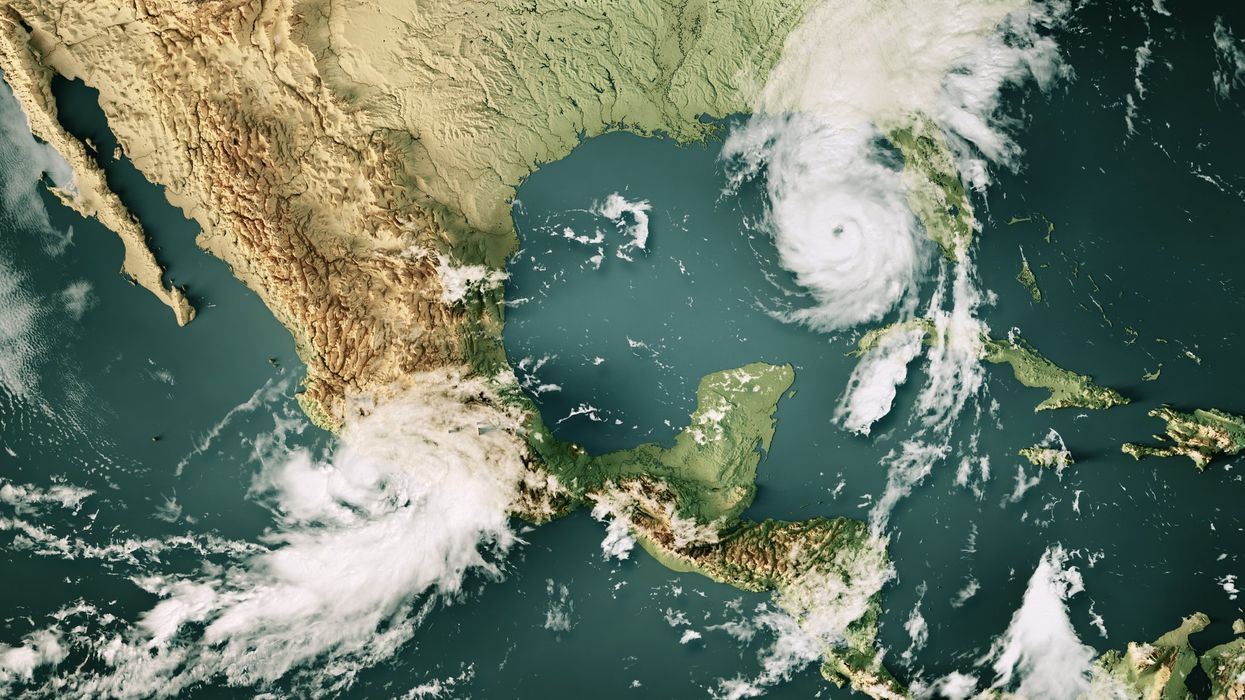The North American hurricane season runs from June 1 through November 30. The season, therefore, is hard upon us, even as the federal government is not prepared for what it may bring.
For the past 45 years, the Federal Emergency Management Agency (FEMA) has been responsible for planning and providing national emergency relief to areas in the path of or affected by catastrophic storms the season often brings. The National Weather Service (NWS) and the National Oceanic and Atmospheric Administration (NOAA), both of which are embedded in FEMA, provide critical information that FEMA used in its storm preparation process.
By now, the necessary planning and deployment of emergency equipment should have been well underway. But it isn’t.
President Trump has repeatedly stated that he intends to eliminate FEMA in its entirety. He is serious. Indeed, acting FEMA administrator Cameron Hamilton was recently fired after he told a Congressional committee that he did not believe that FEMA should be eliminated. Homeland Security Secretary Kristi Noem, who oversees FEMA, has also vowed to eliminate the agency. Accordingly, she recently told lawmakers at a Capitol Hill hearing, “There is no formalized plan” for how FEMA will handle future disasters.
An internal FEMA document prepared at the direction of Acting FEMA Director David Richardson, a Marine combat veteran and martial arts instructor with no prior experience in the kind of disaster preparation that FEMA provides, says that “the intent for this hurricane season is not well understood” and “[t]hus FEMA is not ready.” Unlike the slash-and-burn approach used by DOGE to uproot undesired components of the Federal government, it appears that the plan for FEMA is simply to let it wither away.
The assault on FEMA appears to have begun with the authors of Project 2025 who manifested unhappiness with the National Flood Insurance Program that FEMA manages. In their view, FEMA provides flood insurance “at prices lower than the actual actuarially fair rate, thereby subsidizing flood insurance.” That “subsidy,” in turn, “only encourage more development in flood zones, increasing the potential losses to both [the flood insurance program] and the taxpayer.”
But the flood insurance program has been in existence since 1968 when Congress created it to provide affordable insurance for those who live in areas of danger from storm-created floods. Eleven years later, at the urging of President Jimmy Carter, Congress created FEMA and thus broadened the range of available Federal disaster assistance.
Beyond that, the idea that individuals and businesses are going to build houses and employment centers in the middle of a flood zone is preposterous, assuming, as it does, risk taking of near suicidal proportions. Moreover, the authors’ approach completely overlooks the structures, housing, and others, that were built in areas that became flood zones because of environmental changes that occurred after the structures were built.
The current assault on FEMA is particularly harmful when viewed against the backdrop of last year’s storms. Hurricane Beryl, which lasted from June 28th to July 11, contained maximum sustained winds of more than 160 miles per hour, produced severe flooding across Southeast Texas and damages of $7.2 billion. Later that year, Hurricane Milton, with sustained winds of 120 miles per hour, landed in Florida with 18 inches of rainfall, 10 feet of storm surge, and spawned more than 40 tornadoes. Those hurricanes and last year’s other tropical storms produced economic losses of approximately $500 billion.
Federal help with local disasters like those has existed since 1803 when Congress provided economic assistance to Portsmouth, New Hampshire merchants who had been devastated by a fire that sprang up in their midst. Thereafter, the federal government frequently aided regions and communities that had been affected by hurricanes, floods, and other calamities.
Since its creation, FEMA has been the principal federal agency responsible for dealing with natural disasters of all kinds. It provides temporary shelters for those displaced by floods and other storms, assists with cleanup and recovery after storms have occurred, and assists in preparation for storms that have yet to occur. It is also responsible for the National Flood Insurance Program which, as the name suggests, provides insurance available to those in areas of danger from storm-created floods.
It is conceivable that a case can be made for dramatically reframing the services provided by FEMA or for replacing FEMA with a completely different form of disaster readiness. It is even conceivable, though highly doubtful, that disaster relief should be left to the states. But it is simply not acceptable to decide, as the President and his cohorts apparently have, that, without warning and as the hurricane season begins, everyone is essentially on their own.
That result, like many of the sudden firings and grant terminations in which this administration has engaged, is simply a cruel and shameful exercise of power. And it falls well beneath the values and motivations we have the right to expect from the leaders of this great Nation and the obligation they have had since the Nation’s founding to “provide for the general Welfare.”
James F. McHugh is a retired Massachusetts Appeals Court justice, a former board member, and a current volunteer with Lawyers Defending American Democracy.




















Trump & Hegseth gave Mark Kelly a huge 2028 gift